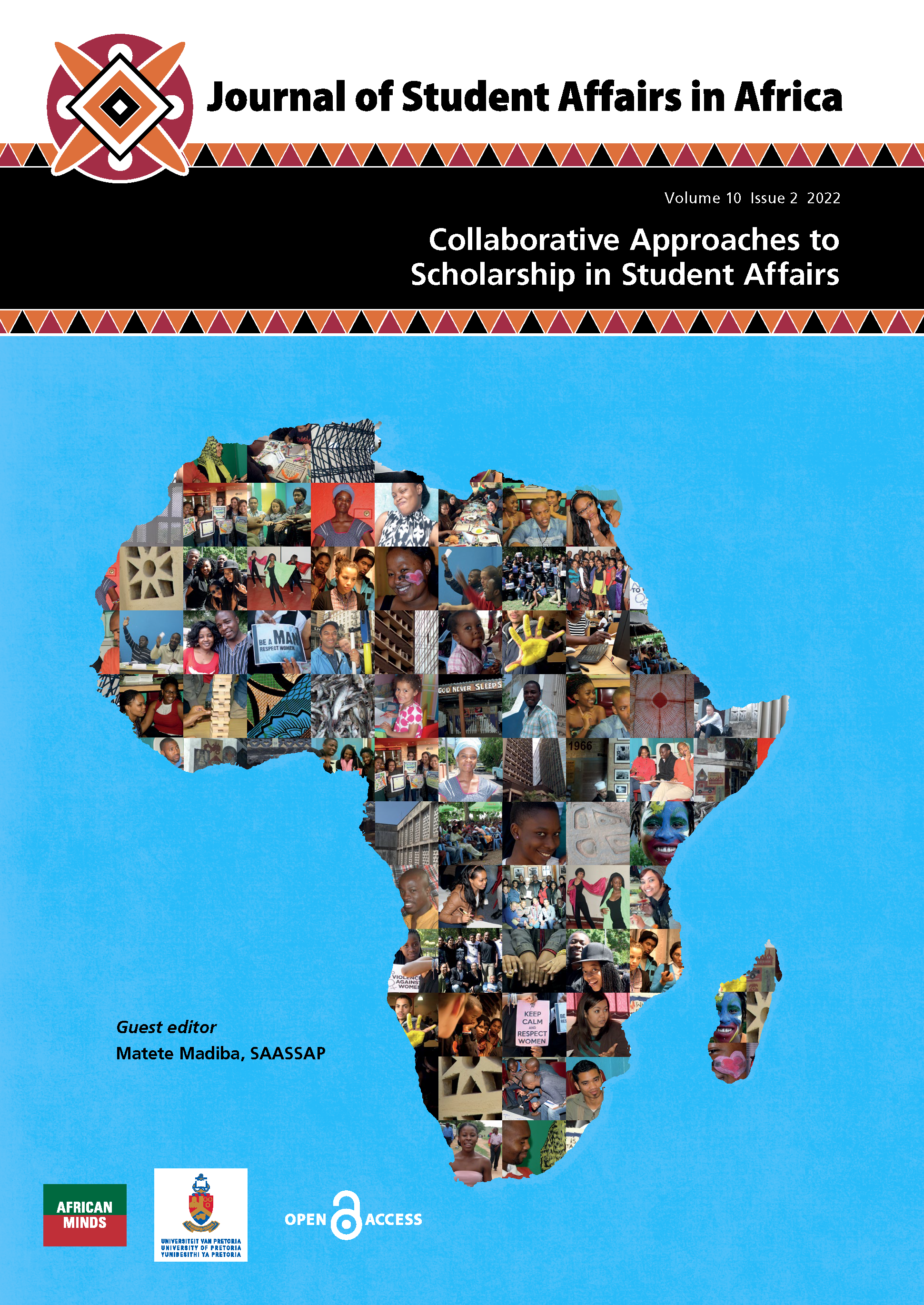Developing online student leadership training interventions so that disadvantaged black students may enjoy a seat at the proverbial table
DOI:
https://doi.org/10.24085/jsaa.v10i2.4367Abstract
The advent of COVID-19 and the consequent imposition of a national lockdown from March 2020 in South Africa spurred South African universities to introduce new remote ways of delivering their curricula and offering extra-curricular activities. Some of these new modes of delivery tended to disadvantage already socio-economically disadvantaged black students whose lack of access to appropriate equipment, tools and data prevented them from properly accessing and fully utilising the new forms of e-learning on offer. In this context, this article considers the challenges faced by student affairs professionals at the University of Pretoria in offering new, inclusive forms of online leadership-development training to students in leadership positions at the institution. It analyses data collected from student leaders between 2016 and 2020 at the university which indicated that there had been a lack of leadership development among disadvantaged black students at high school level compared with that on offer to white students in high school. In this context, this article describes how student affairs professionals at the University of Pretoria sought to translate face-to-face leadership training into online initiatives that would ensure that already disadvantaged black students would not be disadvantaged further through differential access to leadership-development training, particularly given their greater need for such support due to their relative previous lack of exposure. This article further places black students’ needs for equitable access to leadership training in the context of the individual and structural advantages that can accrue from such training, including in relation to career development and occupying leadership positions in the economy and society.
Downloads
Published
Issue
Section
License
Copyright (c) 2022 Juan-Pierre van der Walt

This work is licensed under a Creative Commons Attribution-NonCommercial-ShareAlike 4.0 International License.
Authors who publish with this journal agree to the following terms:
Authors retain copyright and grant the journal right of first publication with the work simultaneously licensed under the Creative Commons Attribution Share-alike 4.0 International License that allows others to share the work with an acknowledgement of the work's authorship and initial publication in this journal.
Authors are able to enter into separate, additional contractual arrangements for the non-exclusive distribution of the journal's published version of the work (e.g., post it to an institutional repository or publish it in a book), with an acknowledgement of its initial publication in this journal.
Authors are permitted and encouraged to post their work online (e.g., in institutional repositories or on their website) prior to and during the submission process, as it can lead to productive exchanges, as well as earlier and greater citation of published work (See: The Effect of Open Access).


